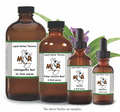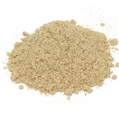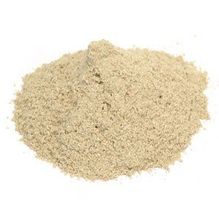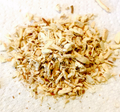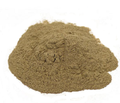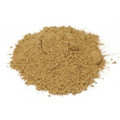 Loading... Please wait...
Loading... Please wait...- Home
- Bulk Herbs
- Herbs (G-H)
- Hydrangea Root Powder
- Home
- Herbs - Organically Grown & Wild Crafted USA
- G-I
- Hydrangea Root Powder
- Home
- Herbs from Hawaii
- Hydrangea Root Powder
Product Description
Hydrangea Root Powder
Also Known As –Hydrangea arborescens, seven barks, wild Hydrangea, and mountain Hydrangea.
Organically Grown Kauai, Hawaii, USA
Overview - Hydrangea is favored by both folk medicine and Native American medicine for eliminating kidney and bladder stones. Found in the southern United States, Hydrangea aborenscens is the botanical name. Most relate the name hydrangea with the beautiful flower, however, for medicinal purposes, only the dried root is used.
Medicinal Uses – The root has long been used as a mild diuretic. It has a reputation for helping to prevent and remove gravel, gallbladder stones, and kidney stones. Will relieve chronic rheumatism, backache, paralysis, scurvy, and dropsy. Homeopathically, for bronchitis, treats diabetes, incontinence of urine, and prostatic affections. The Cherokee Indians used this herb for urinary retention and stones. Also excellent for chronic penile discharge (non-specific urethritis) in men and mucousal irritation in the aged. This herb acts differently in different people. In some it acts like a laxative. Therefore, it is better to start with a smaller dose and increase slowly as needed. The average dose is 2 capsules a day. Externally, scraped bark is poulticed on wounds, burns, sore muscles, sprains, tumors; the bark chewed for stomach problems, heart trouble.
Parts Used - Dried rhizome and roots.
Precautions - Overdosing can cause dizziness and headache. Not recommended for long term use, or if you have a history of Liver or Kidney problems..
Suggested Preparation and Dosage - Traditionally used as a tea or in sugar syrup. Can also be taken as a capsule or extract. Found in cosmetic preparations.
Disclaimer - The information presented herein by Mountain Maus’ Remedies is intended for educational purposes only. These statements have not been evaluated by the FDA and are not intended to diagnose, cure, treat or prevent disease. Individual results may vary, and before using any supplements, it is always advisable to consult with your own health care provider.







